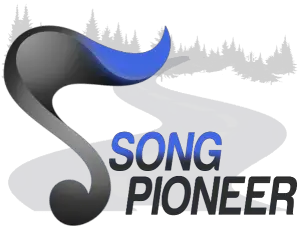When should I copyright my songs? Songs are considered copywritten upon completion. Copyright must be registered with the Copyright Office in order to pursue legal remedies.
First things first. What exactly is a copyright? How does a songwriter copyright his or her music? Does a songwriter need to copyright his or her music? I will answer these questions and more to give you a better understanding of the topic of copyright.
Now is the time to make the obligatory statement that I am not a copyright attorney. These are general statements about copyright and the process. For more detailed information consult an attorney and/or visit copyright.gov.
What is Copyright?
Believe it or not “copyright” is referenced in the Constitution of the United States. Article 1, Section 8, clause 8 states as follows..
The Congress shall have Power To…promote the Progress of Science and useful Arts, by securing for limited Times to Authors and Inventors the exclusive Right to their respective Writings and Discoveries….
A copyright is protection, enforced by law, for creators of original works that are fixed in a tangible form, either published or unpublished. This protection is established the moment the song (in this case) is “fixed in a tangible form”.
In other words, if you write down the words and music on a sheet of paper, your written work is protected from that point on. Similarly, if you record your song’s words and melody in song form, that song is protected by copyright immediately.
That’s it. Some may ask, “what is the big deal about copyright then if it’s automatic once the song is in tangible form?”
Here’s the deal. Sure, your work is protected, however, if someone should steal your work and you decide to pursue legal remedies, you cannot do so unless your copyright has been registered with the copyright office.
Put another way, a court will not even consider your copyright infringement case, even though it’s your own work, if you haven’t filed a copyright registration with the government. Sounds crazy, right? Welcome to the legal system!
One point to keep in mind is that song titles, chord progressions, and song topics are a few items that are not protected by copyright. So, you could write a song titled, “Purple People Eater” if you wanted to even though that is the title of a song that was a hit back in the 50’s. I wouldn’t recommend it, but you have that right.
It’s up to you to decide whether or not to put forth the effort and money to go through the registration process to copyright a song.
When I was first starting out as a songwriter I remember being on a songwriting forum and getting advice from seasoned writers not to bother registering my songs with the copyright office.
They said it was a waste of money and I shouldn’t worry about anyone stealing my songs. They told me when I got to the point of one of my songs getting cut then I could go ahead and register it.
I had a different point of view, however. I had poured my heart and soul into these gems. They were great songs that needed protection from someone looking to steal a great song. So I went ahead and spent the money and took the time to register them.
Looking back, now that I’ve been writing for several years and have a seasoned perspective, I agree with those writers who offered their advice. But I am also glad that I didn’t listen to them. Here’s why.
Putting forth the effort and money to register the copyright to my songs helped me to develop a professional attitude right away when it came to songwriting. As I gained more knowledge and understanding of the various aspects to songwriting the copyright registrations I filed diminished.
Having said all that, my advice to new songwriters regarding registering their songs with the copyright office is to do it with your first song. Register that first song or set of songs. Get them officially recognized by the government as your property.
It will show professionalism and seriousness to the craft. As you travel along your songwriting journey I suspect that you too will discover that not every song needs to get registered for copyright. Maybe you will want to register every song, that’s your call. I encourage you to at least make your first ones official.
Poor Man’s Copyright
This idea has been around for decades. The advice is to seal your song in an envelope and then send it to yourself as “Certified” or “Registered” mail through the Postal Service. Then at some point in the future if you need to challenge someone who steals your song you can produce the sealed item in court that shows the date it was mailed.
Unfortunately this is useless in court and a waste of your time and money. If you want to register your song for copyright do it the right way through the Copyright Office of the United States.
I hope I’ve enlightened you a little more about copyright than you were before. This is just an over view of the subject. I’m not covering the actual process involved in filling out the various forms and supplying a copy of your song, etc.
This article is simply meant to get you thinking about whether or not to register the copyright to your song. Whether you decide to or not I encourage you to keep writing those songs! Never give up. It’s a life long journey and you’ll get better with each song you write. Good luck!
